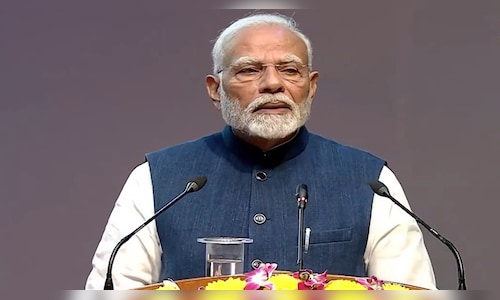
On November 26, 2024, Jammu and Kashmir reached a historic milestone as it celebrated Constitution Day for the first time, marking a pivotal moment in its integration into India’s constitutional framework. Prime Minister Narendra Modi, addressing the Constitution Day celebrations at the Supreme Court, highlighted the profound importance of the occasion, calling it a testament to the resilience of India’s democracy and the transformative power of its Constitution.
“We have seen the Emergency in the country — our Constitution has faced this challenge that arose before democracy. It’s the power of the Constitution that today, in Jammu & Kashmir, Babasaheb Ambedkar’s Constitution is fully implemented,” PM Modi said, acknowledging the challenges the Constitution has endured since its inception, including the tumultuous Emergency period.
For the people of Jammu and Kashmir, this marks the beginning of a new era, where the fundamental values of justice, liberty, and equality enshrined in the Constitution now guide everyday life. As PM Modi put it, “Today, for the first time, Constitution Day is celebrated there (in J&K)… the Constitution is a guiding light for us. Bharat ke bhavishya ka marg ab bade sapno, bade sankalpon ki siddhi ka hai (the path to India’s future is now one of big dreams and greater determination).”
The prime minister paid homage to the members of the Constituent Assembly, especially Dr B.R. Ambedkar, the chief architect of the Constitution, whose vision laid the foundation of a democratic republic. Reflecting on Ambedkar’s words, Modi said, “Dr Rajendra Prasad in his speech in the Constituent Assembly said — India needs nothing but a group of 50 honest people who keep the country’s interest ahead of theirs. This spirit of nation first will keep the Indian Constitution lively for many years to come.”
PM Modi reaffirmed his commitment to upholding the dignity of the Constitution: “I tried to follow the dignity that the Constitution has asked from me; I haven’t tried to do encroachment.”
He also lauded the foresight of the Constituent Assembly members, adding, “I bow respectfully to the Constitution and members of the Constituent Assembly. The 75th year of the Constitution is a matter of immense pride for the entire nation.”
“Our Constitution has shown the right path to find a resolution to every challenge that has come before the nation. It is because of the strength provided by the Constitution that Babasaheb’s Constitution has been fully implemented in Jammu and Kashmir,” he said.
Jammu and Kashmir’s journey to this day
The path to Jammu and Kashmir’s full integration into India’s constitutional framework has been a complex and, at times, contentious journey. The region had been given special status under Article 370 of the Indian Constitution, governed through separate laws and regulations different from the rest of the country. This granted it a separate constitution and restricted the jurisdiction of laws of India in many areas.
However, the abrogation of Article 370 on August 5, 2019, by the Government of India marked a watershed moment. With this legal change, the special status that Jammu and Kashmir had enjoyed since 1947 was revoked, and the region was brought under the same constitutional framework as the rest of India. Though controversial, it paved the way for the full implementation of the Indian Constitution in the region.
Immediately after abrogation, Jammu and Kashmir was reorganised into two union territories — Jammu & Kashmir and Ladakh. This made the place lose its own legislative system and be governed only by laws passed by the Parliament of India.
The transition was not immediate, posing legal, political, and administrative challenges for their transformation. It took time, with the people in Jammu and Kashmir gradually embracing change.
Beyond the legal and administrative changes, the celebration of Constitution Day in Jammu and Kashmir signifies a deeper cultural and psychological shift. For decades, the region had struggled with unrest, political instability, and the feeling of separation from other parts of India. The first Constitution Day in 2024 marks the region’s acceptance of the ideals of Indian democracy regarding justice, liberty, and equality.
The event is not just a ceremonial observance, but a symbol of the region’s march toward a more inclusive and harmonious India. Constitution Day marks a promise of equal rights, access to justice, development, and prosperity for several Jammu and Kashmir residents, on par with the rest of the country.



